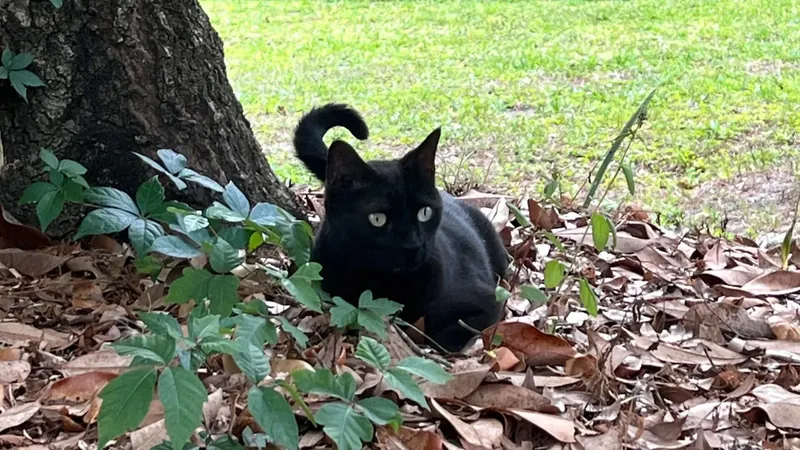
Meet Pepper: The Florida Cat Sniffing Out Viruses That Could Impact Us All!
2025-07-12
Author: John Tan
When it comes to making groundbreaking scientific discoveries, sometimes a feline sidekick is just what you need! John Lednicky, Ph.D., a virologist at the University of Florida, took home an unexpected specimen courtesy of his cat, Pepper, who discovered a dead Everglades short-tailed shrew in the wild.
After testing the shrew in his lab, Lednicky unveiled a never-before-seen strain of orthoreovirus—an intriguing find given that these viruses are capable of infecting not only humans but also white-tailed deer, bats, and other mammals. While the impact of orthoreoviruses on human health remains largely a mystery, they have been linked to rare cases of encephalitis, meningitis, and gastroenteritis in children.
"The bottom line is we need to pay attention to orthoreoviruses, and know how to rapidly detect them," Lednicky emphasized, highlighting the urgency of understanding these viruses.
This newly identified strain has been officially dubbed the "Gainesville shrew mammalian orthoreovirus type 3 strain UF-1," and the findings were published in the journal Microbiology Resource Announcements. Emily DeRuyter, the paper's lead author and a Ph.D. candidate, cautions that while many mammalian orthoreoviruses exist, not enough is yet known about this one to incite widespread concern, though recent research has suggested it might contribute to respiratory and gastrointestinal diseases.
Lednicky's lab isn't new to the virus-hunting game; they've recently uncovered other novel strains in farmed white-tailed deer. "If you look, you'll find," he stated, reinforcing the idea that ongoing searches are critical as viruses relentlessly evolve.
In a fascinating twist, Lednicky's previous work in 2019 isolated the first orthoreovirus in deer, a strain that shockingly matched others found in farmed mink in China and a critically ill lion in Japan. This raised questions about how such a virus could surface in such diverse species across the globe.
With so many questions remaining about how orthoreoviruses transmit, their prevalence, and their potential threats to human and animal health, DeRuyter and Lednicky stress that further research is essential. Upcoming studies will delve into the immunology and serology of Gainesville shag mammalian orthoreovirus type 3 strain UF-1 to evaluate its risks.
And for those worried about Pepper, rest easy: the intrepid cat seems healthy and is likely to continue aiding scientific discovery through his adventures outdoors. "If you come across a dead animal, why not test it instead of just burying it? There is a lot of information that can be gained," Lednicky concluded.





 Brasil (PT)
Brasil (PT)
 Canada (EN)
Canada (EN)
 Chile (ES)
Chile (ES)
 Česko (CS)
Česko (CS)
 대한민국 (KO)
대한민국 (KO)
 España (ES)
España (ES)
 France (FR)
France (FR)
 Hong Kong (EN)
Hong Kong (EN)
 Italia (IT)
Italia (IT)
 日本 (JA)
日本 (JA)
 Magyarország (HU)
Magyarország (HU)
 Norge (NO)
Norge (NO)
 Polska (PL)
Polska (PL)
 Schweiz (DE)
Schweiz (DE)
 Singapore (EN)
Singapore (EN)
 Sverige (SV)
Sverige (SV)
 Suomi (FI)
Suomi (FI)
 Türkiye (TR)
Türkiye (TR)
 الإمارات العربية المتحدة (AR)
الإمارات العربية المتحدة (AR)